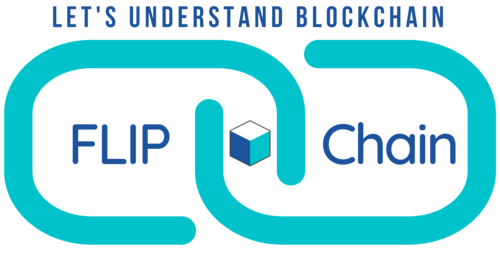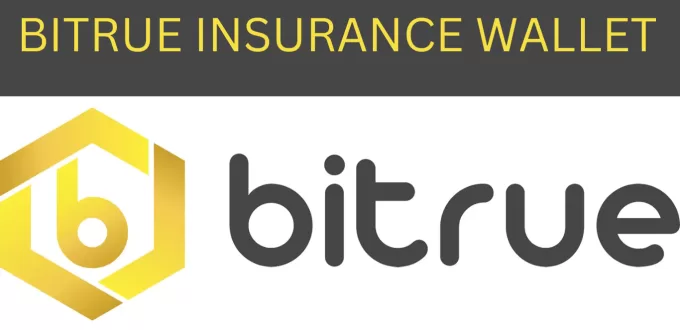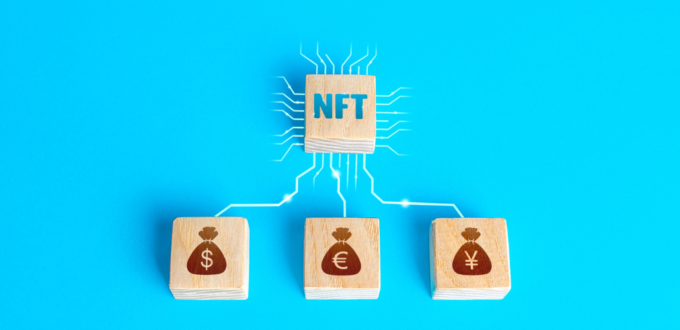Before we dig into the glorious world of ‘Smart Contract Freelance Developer’ lets understand what Smart Contracts are.
Smart Contracts are algorithms written on blockchain to automate the transaction between two entities. For example, if a transaction between an NFT seller and buyer takes place, there are two ways a transaction can take place. In the first method, the buyer pays the amount for the NFT and once the amount is received by the seller, he/she manually hands over the NFT to the seller. The chances of fraud in this method are quite high.
However, in the second method, as soon as the buyer pays the amount for purchasing the NFT, without any manual intervention, the NFT gets released from the buyer and is automatically transferred to the seller’s account. This automation of recording the purchase transaction and trigger for the release of NFT happens with the help of a smart contract.
With several assets like digital art, music, real estate, legal transactions, etc. shifting to the blockchain as tokenized assets, the use cases for smart contract implementation are increasing day by day. In such a scenario, the demand for a Smart Contract Developer is also increasing exponentially. As per the market data, there is a shortage of smart contract developers in the market, at the moment and this is going to increase further, in the coming months.
Various Specializations in Smart Contracts
By now, you shall have got a fair idea of what is a Smart Contract and how it works. Now let’s understand, the various branches of specialization under the umbrella of Smart Contract.
1. Smart Contract Developer
A Smart Contract developer is an expert who can code and develop Smart Contract from scratch and thereby deploy it as a solution on the blockchain.
Furthermore, Smart Contract engineers, who understand the business and Smart Contracts, can pen down the functional specifications of the smart contract, especially when the Smart Contract needs to be deployed in a project which involves transactions of assets and tokens. These functional specifications and Smart Contract architecture are then shared with the developer to code the Smart Contract and deploy it.
2. Smart Contract Architect
A Smart Contract Architect is an expert who understands the business problem and thereby can pen down the architecture of the Smart Contract that would solve the problem raised by the client. Once the final architecture of the Smart Contract solution is ready, it is handed over to the Smart Contract developer for coding and deployment.
3. Smart Contract Auditor
After the Smart Contract developer develops the solution and before its deployment, a rigorous testing and quality check of the Smart Contract needs to be done. This task is handled by a Smart Contract Auditor. Since Smart Contracts are self-executing, therefore, this task is quite critical, to ensure that the intent of the Smart Contract for which it was designed is working without any bugs or delays.
Skillsets Required for Being a Smart Contract Developer
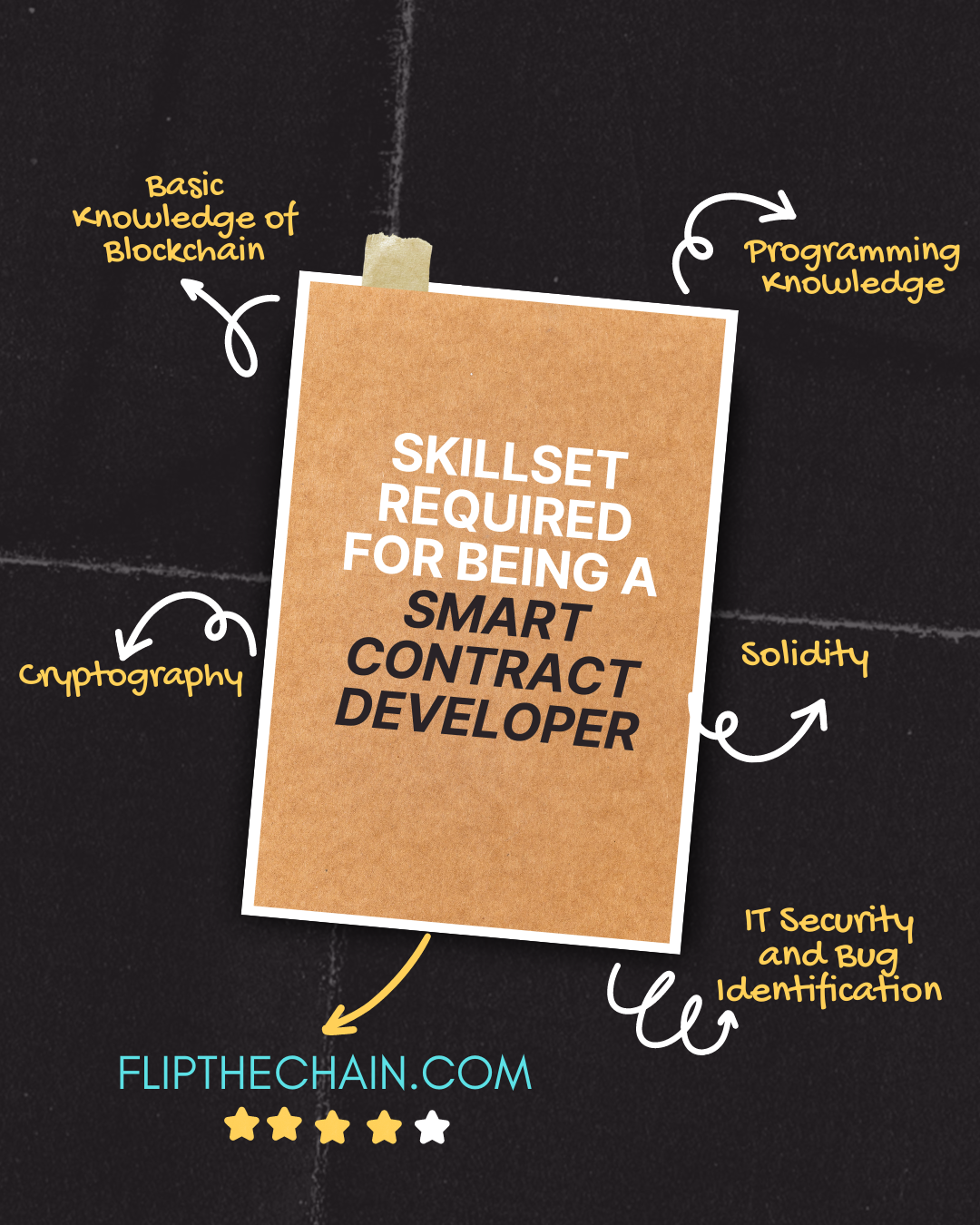
1) Basic Knowledge of Blockchain
To be a Smart Contract developer, one needs to have a basic knowledge of what is Blockchain and how it works. In case, if blockchain is a new terminology for you, then it is recommended to opt for a certificate course in Blockchain.
2) Programming Knowledge
The individual should have prior knowledge of either of the programming languages like Java, Python, C++, etc. A command of either of these programming languages shall help you easily learn Smart Contract development.
3) Cryptography
Cryptography in the blockchain is a technique to make peer-to-peer node transactions safe and immune to unauthorized access. Hashing and encryption of the transaction between nodes, are the 2 techniques used in cryptography, to secure a transaction.
Since smart contracts auto-execute transactions without the involvement of a human, therefore these transactions need to be secure and non-infringeable. Therefore, a Smart Contract Developer and especially Auditor should have deep knowledge and hands-on hashing, digital signatures, and encryption techniques. In case, if you want to learn more about Cryptography, you can opt for a certification course.
4) Solidity or Vyper Programming
Solidity and Vyper are programming languages used to code smart contracts. These smart contracts are deployed on Ethereum, Polygon, and similar EVM blockchains. As a Smart Contract developer/auditor, you should be an expert in either Solidity or Vyper or at least should know the basics (with hands-on) like syntax, control structures, strings, various functions in Solidity and Vyper library, and data types. In case if you want to learn more about Solidity, you can opt for a Solidity certification course.

Excited to Begin?
Difference Between Traditional Programming Language like Java and Solidity
- Executing Code and Visualizing Output
The basic difference between traditional programming languages like Java and Solidity is that Java can be written and executed on a computer or a server and the output can be checked on a web-based platform however in the case of Solidity, you need a solidity compiler to run the code and see the output on blockchain that understands Ethereum Virtual Machine.
- Language and Syntax
The terminologies in traditional programming language like Java differ from Solidity. In Java, for example, a set of code is called as a class whereas in Solidity it is known as a contract.
- Transaction Cost
Executing javascript requires server cost however executing a solidity contract requires transaction, generally in Ethereum. This is the reason, Solidity developers, try to keep the code as simple as possible to avoid multiple execution of the code and save transaction cost.
- Risk of Deployment
Smart contract development on Solidity is very much like making Hardware. Once released, it is difficult to call back. Even if it has to be called back, the cost to do so is quite high. Therefore, rigorous testing and bug identification is required before deploying a smart contract on the blockchain. Extra caution is required since smart contacts auto-execute and incase if any bug is found in the smart contract, it can lead to huge loss for the users interacting with it.
On the other hand, commercial projects coded in traditional programming languages are released in a shorter period of time as compared to a smart contract, and any bugs found in the code can be fixed by releasing the patches (V1.0, V2.0, etc.). Since the code in Javascript requires human interaction and does not auto-execute transactions like in a smart contract, therefore the loss due to bugs in traditional programming languages is quite less.
5) Smart Contract Auditing
While Smart Contract development can be made robust with the use of blockchain cryptography however it is important to have a basic knowledge of IT security and cyberattacks. It shall help in creating a mindset to tackle any potential attack that may happen on the smart contract deployed by you.
How and From Where to Learn Job Ready Smart Contract Development and Auditing?
To become a smart contract developer and auditor there are 3 ways to learn i.e. by enrolling yourself in an University or by attending an online certification program or by attending lectures and tutorials on YouTube.
- While attending a University Program is beneficial as you get more exposure in terms of lab work and get to directly interact with the professors, however, this option could be costly for some.
- Online certification program is an economical way of learning Smart Contract development.
- For individuals, who do not want to invest a penny in learning Smart Contract development, they can choose to go with tutorials and lectures recorded on YouTube, however, the student shall not be able to present his credentials as learning on YouTube doesn’t earn you a certificate.
1) Enroll yourself in a University for Smart Contract Development and Auditing Course
One of the best ways to learn and get recognized for a specific skill set is ‘In Classroom Training’. There are a few universities that offer a course in Smart Contract Development and Auditing, which are as follows: –
a) University of Salamanca – Spain
The University of Salamanca is offering a one-year master’s degree in Blockchain and Smart Contracts. Anyone from Spain with a bachelor’s degree in IT can apply for the curriculum however individuals with education from outside the European Union, shall need to establish the degree equivalence.
b) Monash University – Australia
Monash University is offering a certification course in Smart Contracts. There are a few prerequisites to join this course. The individual seeking admission should have good knowledge of programming languages like Java and Python.
At the end of the course, the student shall be able to write and execute a smart contract. The certificate shall be awarded after submitting lab work and assignments and finally passing a 2-hour 10 minutes exam.
c) Singapore University of Social Sciences – Singapore
Singapore University of Social Sciences is offering 6 months on-campus Undergraduate course on Blockchain Technology and Smart Contracts for Finance. After the course, the student shall be skilled enough to create Smart Contracts and DAPP applications.
d) Northeastern University – Boston Massachusetts
Northeastern University is offering a graduate program on Smart Contract Application Engineering and Development. This course includes a dedicated 4-week lab program on smart contract development and auditing. During the course, the student shall get a chance to work with various tools required to code a Smart Contract.
The final course credentials shall be awarded on the successful passing of the final demo project.
e) University of Malta – Malta
The University of Malta is offering an on-campus certificate program in Blockchain and Smart Contract Programming (. The student shall be evaluated and awarded the credentials after the successful submission of a project assigned by the professor.
At the end of the program, the student shall be skilled enough to write and audit a Smart Contract.
2) Learn through Online Certification Courses
There is a plethora of online certifications courses available for learning Smart Contract Development and Auditing, however, the following are some of the most preferred ones: –
a) Consensys
Consensys runs an on-demand Blockchain Developer Program aimed towards teaching the student basics of blockchain, Ethereum blockchain, and thereafter advancing to coding a smart contract. Blockchain Council. It is a self-learn program and the student can access it and complete the course without any time restriction. They currently have their waiting list open. If you are interested in enrolling in this program, you can leave your email id and their team shall get back when the next course dates are announced.
b) 101Blockchain
101Blockchain offers more than 60 courses on blockchain and one of the online program is Smart Contracts Development. The course can be completed in flexible hours and on passing the online exam, the student shall be awarded with a certificate. During the course, in case the student has some questions, the mentors can help clarify the doubts.
c) Microsoft
Microsoft has launched a free online course on developing Smart Contracts on Ethereum using Solidity. Before starting the course, the student is required to download the softwares listed on their website.
d) IIT Kharagpur and IIT Kanpur
Indian Institute of Technology (IIT) is one of the premium public universities in India which is offering a free online course on Smart Contract development. This is a 4 months program and is currently being offered through Simplilearn.
e) Cryptozombies
Cryptozombies is offering an online course on coding Smart Contract using Solidity. Their methodology of teaching Smart Contract coding is quite unique. The student is required to create a zombie factory game and deploy smart contracts in the game. The students really love this concept and as an outcome of the program, they are skilled not only in Smart Contracts but also in Blockchain Gaming.
f) Alchemy
Alchemy is offering a boot camp on Ethereum where an individual can learn Ethereum Smart Contract development and auditing. The student is required to complete the course in maximum 7 weeks of time. The program credentials are awarded on completing the final project.
g) Speed Run Ethereum
Speed Run Ethereum teaches Smart Contract development by starting with a pre-recorded session and thereafter presenting various assignments as challenges for the student to complete and learn the concepts. It’s a fun-filled learning experience on Speed Run Ethereum.
Few other Smart Contract development online certifications are as follows:-
h) Learn Web3
i) Edx
j) Cryptouniversity
k) Web3 University
l) Udemy
m) Solidity by Example
n) Eat the Blocks
3) Learn with the help of YouTube!
The third way of learning Smart Contract development and auditing is by watching and following the lectures and tutorials recorded on Youtube. The advantages of attending Youtube videos are that it is free and most of the doubts that you might have would have already been answered by the teacher in the video comments section. In case, if you still might have questions, you shall have the option to post your question.
Following are the 3 most popular videos present on Youtube for teaching the Smart Contract concepts and its deployment.
1. Smart Contract Development and Audit Course by Patrick Collins
The following is a 32 hour video which covers basics of blockchain, Remix, Ether.js simple storage, Hard Hat simple storage, Smart Contract development, ERC20, EIP and token standards, NFTs, Decentralized Finance and full stake Defi development.
2) Smart Contract Course by dapp university
The following is a 9 hour long video which covers smart contract, token staking, token issue and setup.
Tools Required for Smart Contract Development
The following are the tools required for Smart Contract development: –
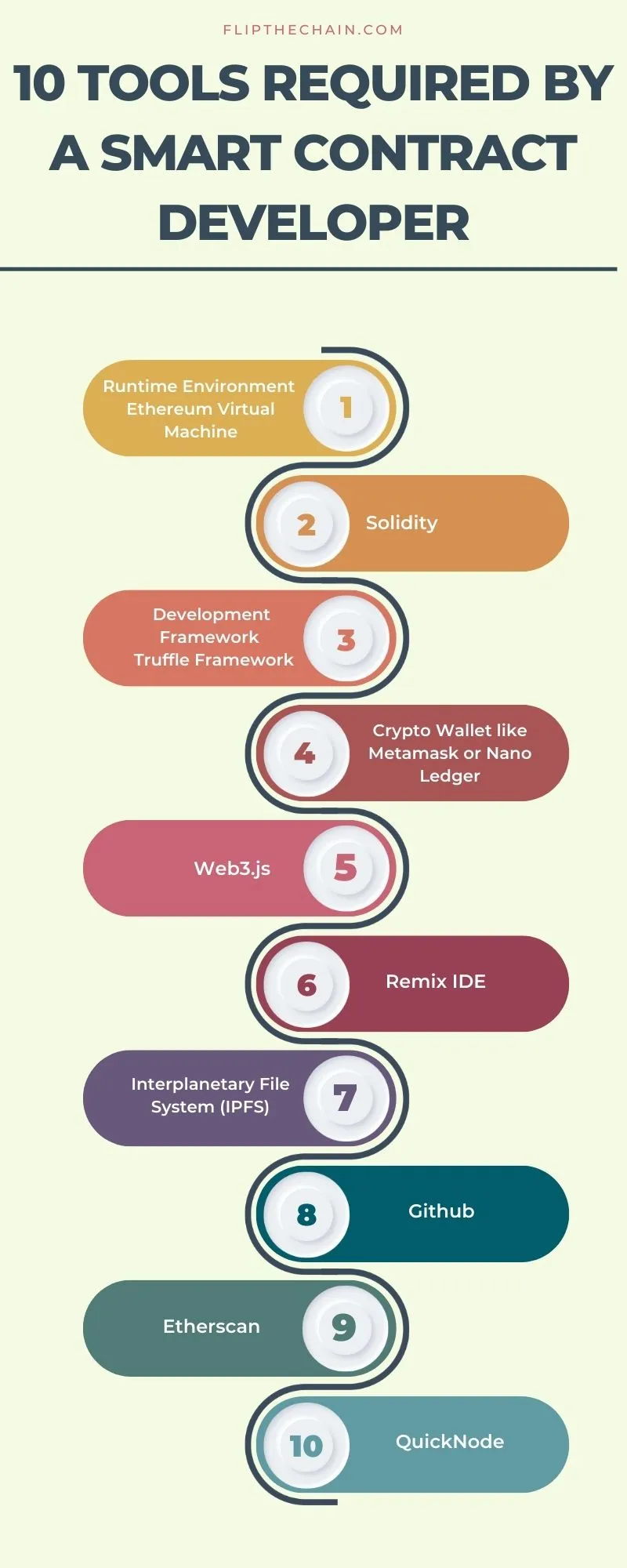
1) Runtime Environment – Ethereum Virtual Machine
Ethereum Virtual Machine (EVM) is a virtual computer that helps in executing the smart contract code written in Solidity or any similar programming language. EVM is also called a runtime environment as it helps in executing the smart contract. Basic knowledge of stacks, bytes, and memory shall be required to work on EVM.
Download EVM and start your journey for Smart Contract development.
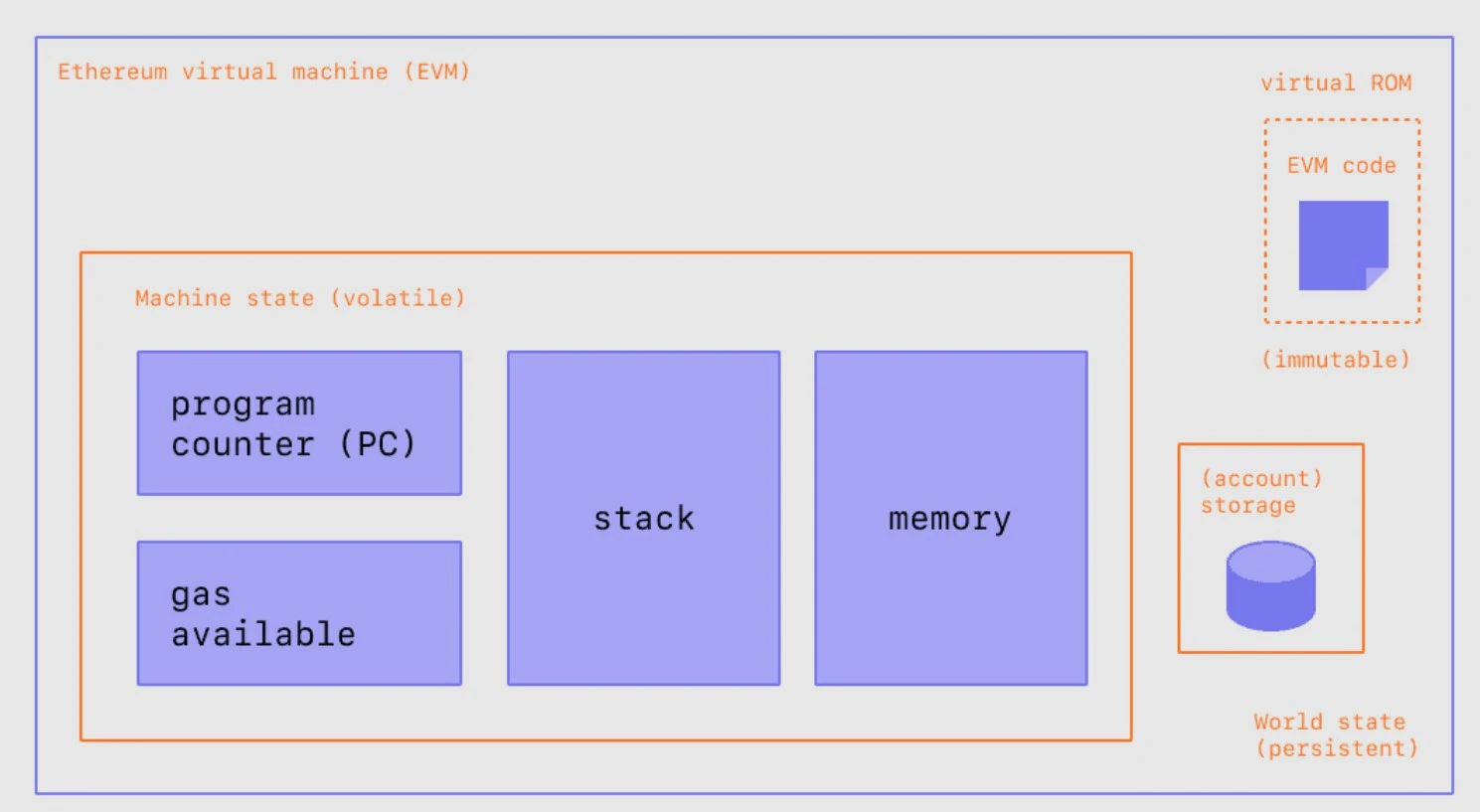
2) Solidity
Solidity is a programming language for smart contract development that runs on Ethereum. It is a programming language that is written with curly braces ({}). You can practice Solidity before downloading the EVM. Once you are comfortable with Solidity, you can further explore the documentation and install Solidity.
3) Development Framework – Truffle Framework
Truffle is a collection of tools, which includes tools for developing, testing, deployment, and debugging smart contracts on an EVM platform (as mentioned in Point 1) 1Ultimate Guide to Truffle: The gateway to full stack blockchain development¶. Ultimate Guide to Truffle: The Gateway to Full Stack Blockchain Development – Truffle Suite. (n.d.). https://trufflesuite.com/guides/ultimate-guide-to-truffle-the-gateway-to-full-stack-blockchain-development/.
To start with, download the set of tools and documentation required to start the development of a smart contract.
An alternative for Truffle is UseDapp , which is quite user-friendly and is used commonly in the Smart Contract development community after Truffle.
4) Wallet
A digital wallet that can hold cryptocurrencies shall be required for paying for the transactions while deploying and testing (testnet funds) the smart contracts. There are 2 types of wallets – hot and cold wallet.
Hot Wallet
Hot wallet is a wallet type which is web based and can be accessed by logging in with a username and password on the web-based wallet.
– Advantage of Hot Wallet
The advantage of a hot wallet is that it is easy to access since its web based.
– Disadvantage of Hot Wallet
However, the disadvantage of a hot wallet is that since its web based, the attackers find it easy to hack the wallet. Once hacked, it becomes quite difficult to recover the wallet access.
The smart contract developers use Hot Wallet to store small amount of funds, especially the funds required for testing the smart contract, since it is easy to access.
Examples of hot wallets are Metamask and XUMM wallet. These can be downloaded from Google App store or Apple Play Store.
Cold Wallet
Cold Wallet is a wallet type which is offline. It is usually present in the form of a pen drive like device or in the shape of a card. It is also called as an offline wallet as the wallet can only be accessed by connecting the wallet to a computer, else it can’t be accessed.
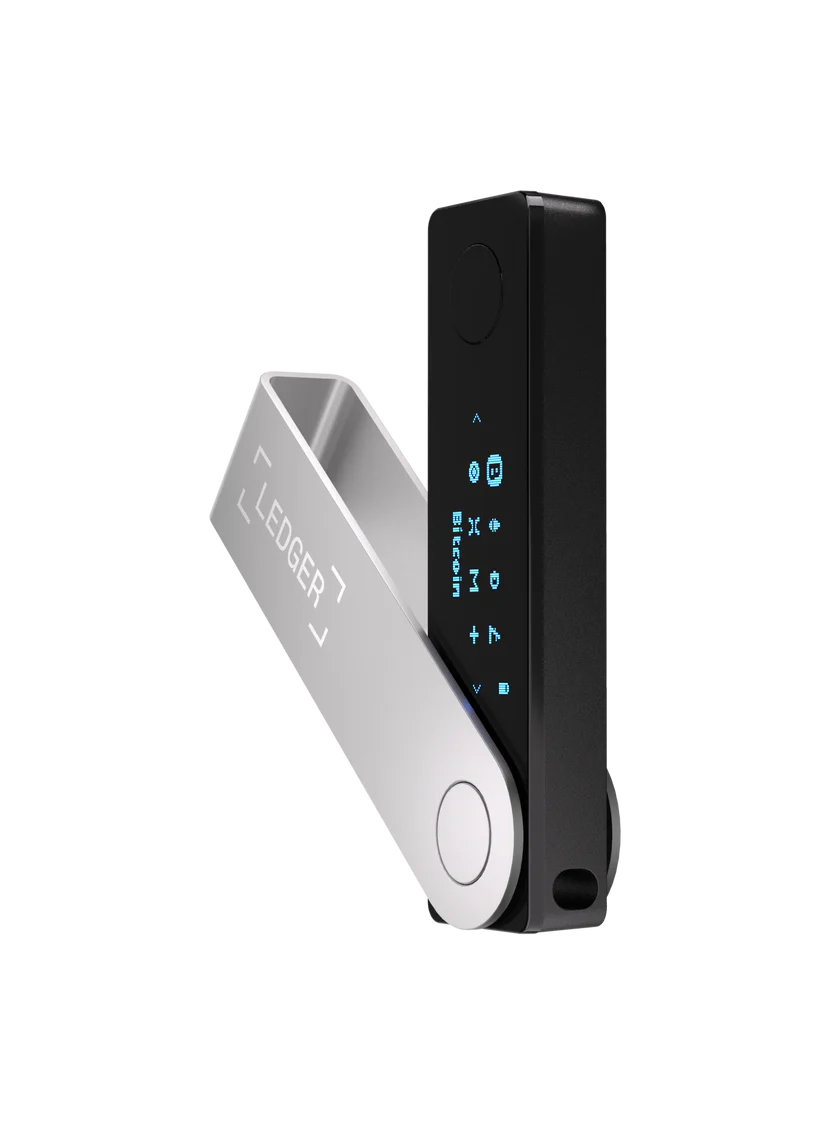
– Advantage of Cold Wallet
Since a cold wallet is offline, there it is quite safer than hot wallets. It is next to impossible to hack a cold wallet, unless you leak your wallet’s code by mistake.
A smart contract developer makes use of a cold wallet only if they have huge funds to store. This is generally required while deploying a smart contract since this process sometimes require hefty amounts.
– Disadvantage of Cold Wallet
Since, to access the cold wallet, one needs to connect it to a computer, therefore a lot of individuals find it difficult to work with. Also, if you are often moving around, while carrying it with you, an extra caution is required to prevent it from losing it.
Ledger and Trezzor are the two most popular cold wallets.
5) Web3.js
Web3.js is a java based open-source package kit which consists of essential tools required to interact with the Ethereum Blockchain. As a smart contract developer, Web3.js’ API shall be required to deploy smart contracts on the Ethereum blockchain. Furthermore, Web3.js has built-in helpers for Ethereum Web 3 and dapp packages that make smart contract development much easier.
Web3.js allows a smart contract developer to easily create accounts, process and sign transactions on Ethereum Blockchain, and query and extract information from the Ethereum nodes.
You can download Web3.js and start exploring it.
6) Remix IDE
While Web3.js is a kit for deploying and interacting with Ethereum Blockchain, whereas, Remix IDE is a kit that enables Smart Contract developers to write Smart Contract code, debug it, conduct unit testing, and use a compiler for deploying the Smart Contract.
It has inbuilt sets of plugins with a front-end graphical user interface, which makes Smart Contract development easy. Further, Remix IDE consists of Solidity Static Analytics (Myth X) which scans the smart contract code for potential bugs or security vulnerabilities. The best time to use this is during the development and just before deploying the smart contracts.
7) Interplanetary File System (IPFS)
One way of storing the smart contract files is by using cloud storage however the only disadvantage of cloud storage is that it is not 100% secure and therefore chances of losing the stored files are always there. An alternative to cloud storage is Interplanetary File System. It is a blockchain-based storage. A file saved on IPFS gets stored as small chunks of the original file across multiple nodes of the blockchain and therefore the file remains secure.
A Guide on How to Use IPFS
8) Github
For any Smart Contract developer, keeping track of the change in the code is quite a difficult task. This is required to revert to the previous version of the code if required. Github is an open-source platform that helps a developer in keeping a version control history of a code.
9) Etherscan
Etherscan is a block explorer tool that shall help a smart contract developer, track a transaction that happened on blockchains like Ethereum, Polygon and Binance Smart Chain. A smart contract developer should be able to comprehend a transaction using Etherscan as this shall help in triaging any potential issues with the Smart Contract transactions.
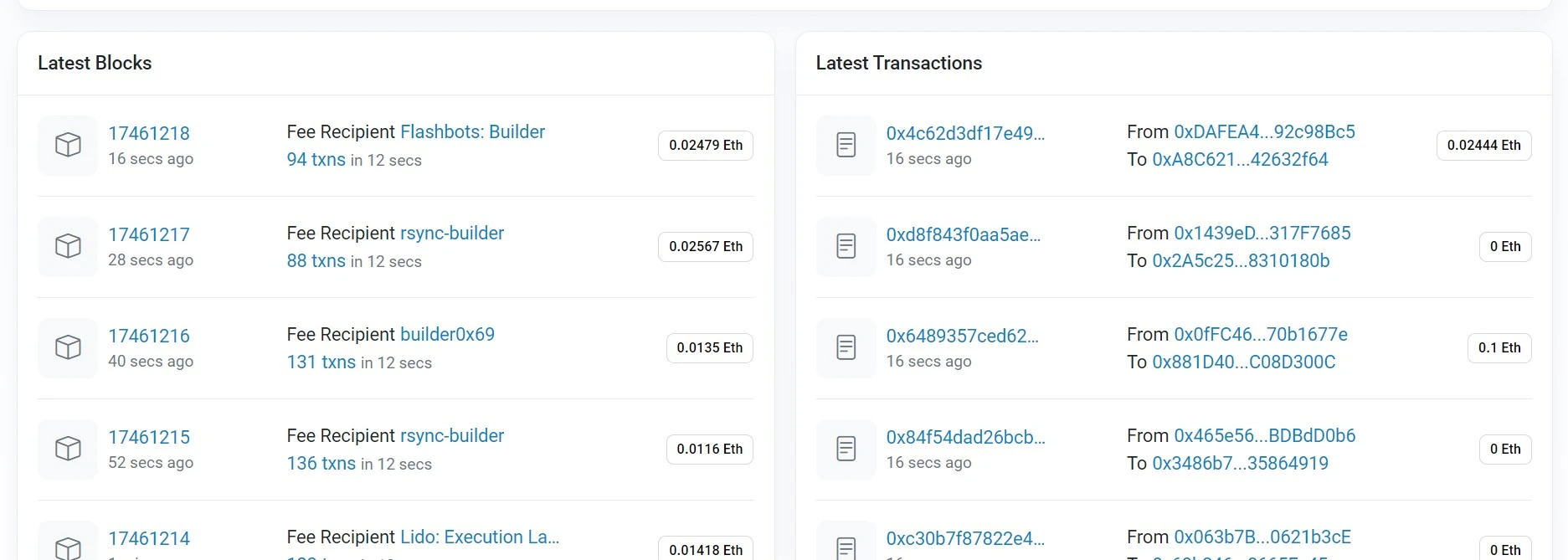
How to Use Etherscan?
10) QuickNode
To send a transaction from Smart Contract to the blockchain, a middle layer is required, also known as a ‘Layer one node’ or ‘Layer one connection’. QuickNode is one such Layer one node API that helps you connect your smart contract to various MainNet and TestNet blockchains like Ethereum, Bitcoin, Terra, Algorand, Solana, Binance Smart Chain, Fantom, Polygon, xDAI, Celo, Optimism and Arbitrum.
To aim projects for Smart Contract, you need be to be aware of the verticals, where the smart contract is currently being used. Let’s try to find out, application of smart contract in the real world and thereafter understand the freelance services which you can offer in these areas.
Applications of Smart Contract in Real World
1) Payments
Sending emails, messages and using mobile phone to call someone is instantaneous, however when it comes to payment, currently there is a lot of friction in the movement of the money, especially, when we talk about cross border payments. This is where smart contracts fill the gap, by replacing the intermediaries (clearing house – who verify and release the payment) with algorithms that would verify the transactions based on the KYC and AML laws and thereby release the payment immediately to the receiver. With the help of smart contracts, the payments shall be almost instantaneous and work 24X7X365.
Currently the use of smart contract is being done in Wholesale Central Bank Digital Currency (w-CBDC) and Retail CBDC
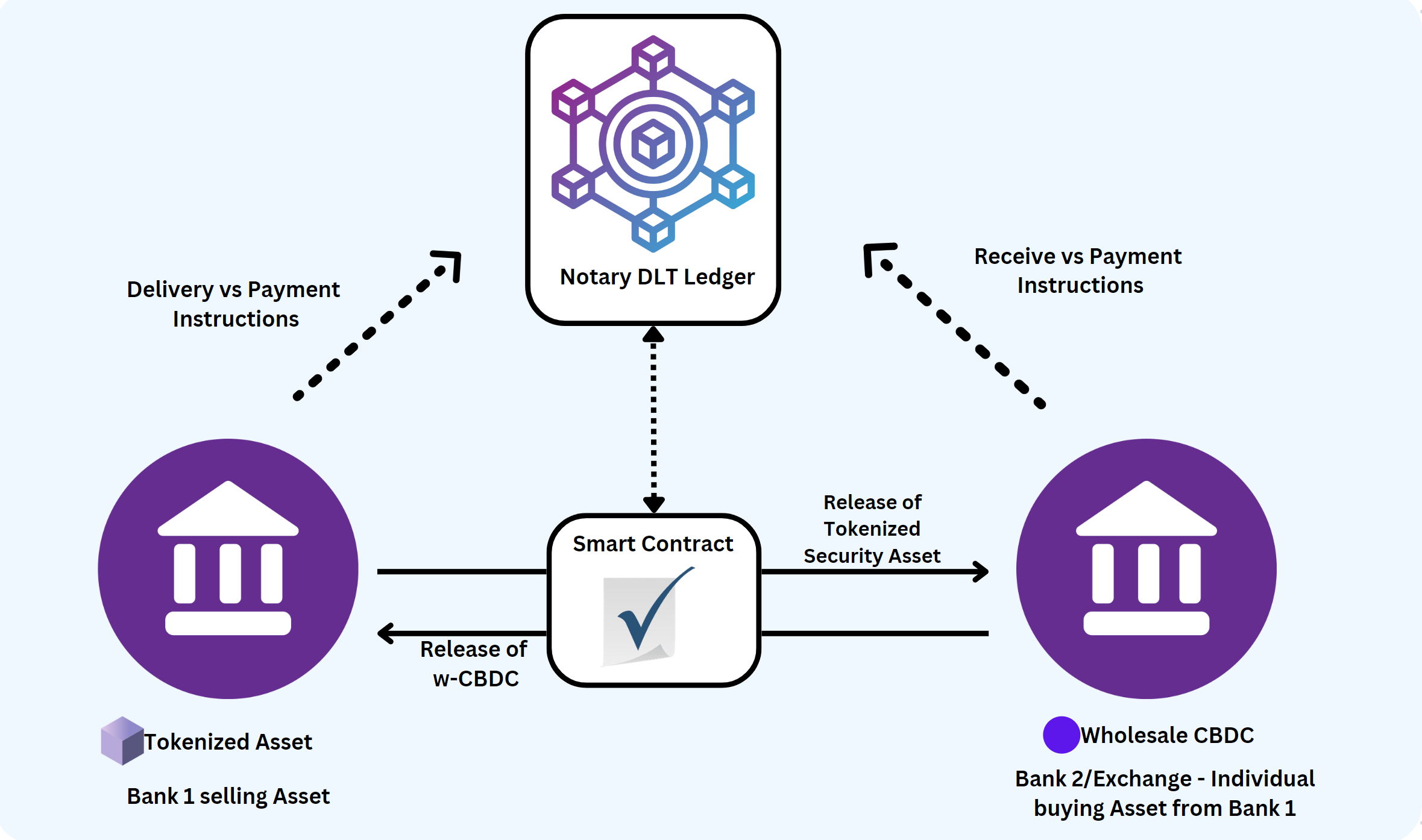
2) DeFi
DeFi is also known as Decentralized Finance, which is a novel way of lending, distributing, and borrowing money with the help of blockchain. In 2023, DeFi has become a US $100 Billion market2Billy Endres. (2023, April 28). DEFI Statistics 2023: See how defi is evolving. finder.com. https://www.finder.com/defi-statistics. There is no intermediary involved in this process. Rather, Smart contracts manages the distribution of payments. It is sometimes also known as peer-to-peer payment system because of the lack of intermediary in the whole process.
3) Gaming
A new concept of ‘Play to Earn’ games have bud up in the market where the player can earn crypto tokens while playing the game with which either the player can buy assets in the game or sell these tokens on the crypto exchange and transfer the money to his/her bank account.
Currently, the market size of play to earn games was USD 3292.73 million in 2022 and is growing at a CAGR of around 18%. It is forecasted to be USD 9000 million by the end of 2028.
The whole concept of ‘Play to Earn’ games rely on the efficiency of smart contract deployed in the game. Awarding of tokens to the player as earning is handled by smart contract and therefore is almost instantaneous.
Cryptozombies run an online program to teach coding and deployment of smart contract in a game.
4) Voting
The use of Smart Contract and blockchain in the voting system is known as tokenized governance. The need of making the voting decentralized is required not only in the governance but also in organizations where decision making is based on voting. Use of Smart Contracts, helps in making the voting process autonomous and tamper proof.
How to Deploy Smart Contract for Voting?
5) Judiciary System
After a judge passes the judgement, management of the decision becomes an issue in most of the cases. For example, in the case of alimony, where the husband is required to pay an amount to his wife. With the help of smart contract, the transparency can be brought in, and the required stakeholders can easily track the punctuality of alimony payments. Furthermore, the use of Smart Contracts in judiciary is also done in managing decisions involving various organizations in building a project3Julien Chaisse, P. at C. U. of H. K., & Jamieson Kirkwood, R. F. at the C. U. of H. K. (2022, January 5). Smart Courts, smart contracts, and the future of online dispute resolution. Stanford Journal of Blockchain Law & Policy. https://stanford-jblp.pubpub.org/pub/future-of-odr/release/1. This helps in avoiding any issues/misunderstanding between the parties as the laws (algorithms – if this happens then do that) are clearly coded in the Smart Contracts.
6) Tokenization of Assets
Various assets like gold, real estate, stocks, bonds etc. are being talked about for converting into NFTs and launching them on blockchain. Once launched on blockchain, a Smart Contract shall help in removing the intermediaries and help release the asset to the buyer after the payment gets recorded on the ledger. This shall help in minimizing the disputes that happen between the buyer and seller and make the process swift.
7) Supply Chain Management
The use of smart contracts in supply chain management is done to bring in more transparency so that all the stakeholders involved i.e. the supplier, retailer and bank can have a view on the transactions. The smart contract is deployed at the ERP interface level where the instructions for the release of the goods is done automatically by the line of codes written in the Smart Contract, after confirming the receipt of payment. Also, with the help of Smart Contract, terms and conditions between the seller and the buyer can be confirmed and recorded on the ledger so that the process of supply chain becomes tamper proof.
8) Metaverse
Metaverse is an immersive experience in a virtual world, where humans can interact with each other as if they are present just next to each other, even though being present in different parts of the world. Since Metaverse is seen as a substitute for an offline event, therefore, to make the event exciting, use of smart contracts can be done to award the participants for executing tasks or winning a game during the event.
Smart Contract Services that Can be Offered as a Smart Contract Freelance Developer
Following are the various services that are quite commonly offered by freelance Smart Contract developers: –
1) Technical Consulting
A lot of companies look for experienced Smart Contract developers to finalize the smart contract algorithm before they deploy it. This is where you as a freelancer can engage with the client.
2) Support and Auditing
Before deploying the Smart Contract a rigorous check is required to make sure, there are no bugs in the code. This is where you as a freelancer can help the organization by conducting an audit and charge per hour fees to complete the audit.
3) DAAP Applications Built on Blockchain
The trend of decentralized applications on blockchain has increased recently. With every decentralized application, there is a need for a Smart Contract developer, and this is where you can get engaged with the client. Having domain knowledge in a specific vertical (Healthcare, Law, Fashion etc.) shall give you an added advantage than others.
4) Blockchain Gaming- Smart Contract
Blockchain gaming is incomplete without Smart Contract, since its mostly decentralized. You can help the client build various Smart Contracts based on the game theme and requirements.
5) Fundraising
Fundraising has now shifted on blockchain, and this is where you can offer your service for creating Smart Contract to provide crypto tokens/NFT tokens every time someone donates funds to the fundraiser.
6) Private Blockchain
You can offer Smart Contract services for an individual or organization planning to launch a private blockchain. This is a huge work and would need an active engagement from your side.
7) Business Specific Use Cases
This shall be an open-ended service where you can offer to connect with the client, understand their business requirement and thereby code the Smart Contract accordingly.
How to Get Projects as a Freelance Smart Contract Developers?
Now since you have a fair idea of the industry verticals, where Smart Contract is currently used, it shall now become easier for you to target for the projects. Following are some of the ways in which you can target for Smart Contract projects/job: –
1) Freelance Websites
Following are some of the websites from where an individual can easily grab Smart Contract freelance projects:-
- Freelancer.com
- Fiverr.com
- Upwork.com
- Arc.dev
- Cryptotask.org
- Thirdwork.xyz
- Sourceforge.net
- Topiqs.com
- Truelancer.com
- Revolo.com
You can create your profile in these freelance websites and display your per hour rate for the project. Since when you start afresh, you shall not have a portfolio of projects to showcase and therefore it is suggested to start with a low price to easily grab the project. Also, during the initial stages, try to be as flexible as possible to gain good rating for your work. Once you start building your portfolio, you may try to increase the per hour charges.
Further, if you are working solely on the project (without the team), it is recommended to turn off your availability on the freelance portals till the time you finish your project. This shall prevent buyers placing the order for Smart Contract project, while you are still engaged in a project. In such a case, you shall not be able to deliver the new project on time which shall lead to customer dissatisfaction and probable bad customer ratings.
2) Job Websites
Once you have a considerable portfolio of projects built up to showcase in your resume, you can try applying directly on job websites which require experience. Following are some of the most famous Smart Contract job websites:-
- LaborX.com
- Web3.career.com
- Wellfound.com
- Cryptocurrencyjobs.com
How Much Does a Smart Contract Developer Earn?
With an increase in the number of use cases of Smart Contracts in real world scenario, the demand for domain experts is also increasing. The industry is currently facing a shortage of Smart Contract skilled engineers. The current salary range for an individual opting for a job range from USD $150K to USD $300K4Smart contract developer salary – jun 2023. Web3 Jobs. (n.d.). https://web3.career/web3-salaries/smart-contract-developer, depending on the experience of the individual. Around 40-50% of these are remote jobs.
For individuals working as freelancers, the per hour rate varies from $65 – $130, depending upon the number of projects he/she must showcase in their portfolio.
References
